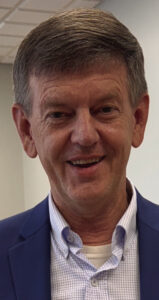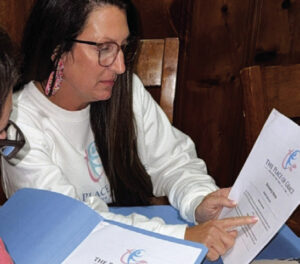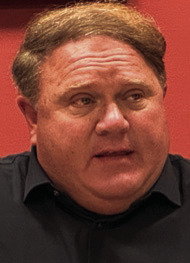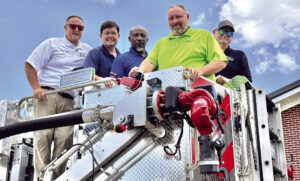Immigration: Just say when
By By Craig Ziemba / guest columnist
Nov. 17, 2002
If the sight of Haitian refugees risking their lives swimming to shore after crossing hundreds of miles of open sea for a chance to live in America doesn't move your soul with compassion, you don't have a heart. But if you honestly think we can allow the entire Third World to immigrate to the United States without destroying our society, you don't have a brain.
It's fair to say that a majority of the world's soon-to-be six billion people would move to the United States today if they had the chance. In my travels through Latin America and the Middle East, I've seen an alarming trend of people who have given up on reforming their own countries and have chosen instead to flee to the United States.
If you trace our roots back far enough, all of us are descendants of immigrants. Throughout history there have been numerous mass migrations, including the one that brought my grandparents through Ellis Island in search of opportunity here in America.
The stirring inscription at the base of the Statue of Liberty, "Give me your tired, your poor, your huddled masses yearning to be free …" was a beautiful invitation that millions answered. Back when the bulk of our continent was unsettled and anyone who wanted could have 160 acres of land every 10 years if they promised to farm it, open immigration was not only a beautiful sentiment, it was practical policy as well.
The frontier that seemed so boundless 150 years ago has long since been settled, but waves of immigrants continue to arrive at our shores. At some point, America will reach its carrying capacity and something will have to give. What then?
In order to solve the immigration dilemma, we need to understand why billions of people want to move here in the first place. America has undoubtedly been blessed by God, but ours isn't the only continent rich in resources and potential.
South America has tremendous expanses of rich, uninhabited land. Africa has untold diversity of natural resources and raw materials. Asia has a literate workforce 10 times the size of ours.
So why have we prospered while so much of the world has languished in poverty and corruption? Are we doing something right, or are we just plain lucky?
When I was a boy, my mom and dad helped several immigrant families get on their feet. It didn't take much and didn't take long. I've seen Asian refugees learn English in a few months, work their way through college, and rapidly climb to the top of their professions.
They were hungry to learn, hungry to work and, most of all, hungry to become productive Americans. Though their accents and customs were foreign to us, in their hearts they were just as American as we were. They proved beyond a doubt that the American dream was alive and well for those willing to work for it.
Why couldn't such hard-working, motivated people succeed in Southeast Asia? Ask them and they will tell you that the difference is our culture of freedom freedom to make your own choices, set your own goals, worship and do what's best for your family.
If the ultimate difference between our success as a nation and theirs is freedom, isn't it possible that other countries would prosper if they would give freedom, democracy, equality and opportunity a try?
Our ability to absorb the world's poor is rapidly coming to an end. At some point Haitians, Cubans, North Koreans and Middle Easterners must exercise some initiative and revolt against the dictators and despots that hold them in bondage.
The irony is that when we grant millions of dissidents and refugees asylum in the United States, they are no longer a force of change within the cultures they fled. The opportunity to immigrate to America may actually doom their countries to prolonged suffering under dictators who conveniently export their opposition.
We may do more to promote freedom and democracy by exercising tough love and closing our borders. Eventually, we may have no choice.
Craig Ziemba is a pilot who lives in Meridian. He can be heard this Monday on WMOX-1010 AM from 7:15 a.m.- 9 a.m.













